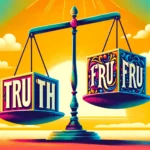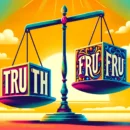A bunch of bigots does not a nation make
This week I want to pay tribute to John Sibi-Okumu. John is a man with many strings to his bow: he is a teacher, a dramatist, an actor, a TV personality, an editor and a columnist. And those are just the pursuits I know about. He inspires children and intimidates politicians in equal measure – and were there ever two better uses of a good man’s time?
John is the human equivalent of the Swiss army knife, but it is not his accomplishments as a polymath that I wish to applaud, formidable though they are. No, John is doing something of far greater importance to the future of Kenya. For as long as I can remember, he has been on a one-man crusade to free us all from the disease called negative ethnicity.
We all know about this disease, for we are all its victims to varying degrees. It has many, many nasty symptoms. It causes educated and mature men, for example, to think that all members of another tribe behave in one (and only one) way. It causes otherwise-sensible women to worry about the tribes of their children’s teachers, in case they are taught all the wrong things. It causes sharp-eyed businesspeople to ignore the best deal in the market and pursue the (more costly) one that benefits a member of their community.
Those in the grip of the affliction are often found dwelling at length on the circumcision status, dental discoloration, nocturnal habits and vowel sounds of others – and attaching great (but always negative) importance to those attributes. That is the sad part of this ailment: it eventually reduces its victim’s brain to porridge so that no rational thinking is possible.
So once-intelligent people will be reduced to muttering abusive epithets to summarise whole tribal groups. Did someone not agree with your opinion? Well, you know what these lake people are alike – you’re lucky he didn’t stone you as well. Did that couple just break up? Ah, Kikuyu wives: she must have cleaned the poor fellow out of all he owned. Service a little slow today? Must be a coastal, that waiter – they’re as lazy as the day is long.
And so we go on, for all our lives, ad nauseam ad infinitum, piling stereotype upon stereotype, typecasting and pigeonholing every single person we know. How mentally lazy, bigoted and tiresome we are.
But this goes beyond just being boringly predictable. Our prejudices have severe repercussions on our economic development. Look around you: in what sense are we a ‘nation’? A bunch of communities all scowling at each other in suspicion does not a nation make. Every country that has ever taken off in history has had a big idea: for some it was personal liberty and enterprise; for others it was thrift and investment; for yet others discipline and determination. What’s our big idea? There are certainly many, many smaller ideas around: ideas for the Kikuyu Nation, for example. Or for the Kalenjin Hegemony, the Asian Monopoly or the Luo Ascent. For our own communities, we entertain bright ideas and unpublished master plans. For the nation and for all Kenyans? Nothing at all.
Look at the how the economy works: as far as we can help it, we trade amongst our ‘own’ kind. Study most people’s buying patterns and you’ll note that wherever possible, they buy ‘ethnic’: their cars, medical treatment, travel bookings, insurance, catering, dog training – all procured from people of similar stock.
We even have prejudices within prejudices: Kiambu people look down on Nyeri folk, Jains look down on Cutchis, and settlers look down on expats. We all pray, trade, and socialise amidst our brethren, and show a high wall to everyone else.
We cannot take off until we learn to open our eyes. Your parents taught you all that bigotry, but guess what? They were plain wrong. It is this narrow-mindedness that John Sibi-Okumu has been lampooning for all these years: in his plays, his talks, and his writings. And he’s done it with wit and wisdom, sensitivity and sarcasm.
Here’s how development and progress actually works. When you want to hire someone, you take the best person for the job – not the one with a name like yours. When you want to buy something, you search for the best price-quality combination – not the seller who shares your skin-tone. That way, resources go to their best uses and are deployed efficiently, and talent, not accent, is the most important attribute in the economy.
The late Francis Thuo, recently deceased, was a Kenyan with a difference. The best friend he ever made in life was not a fellow Kikuyu, but a Kalasinga who became his constant buddy and partner for life. If we’d had a few more leaders from all communities with that kind of openness of mind, we’d have taken off a long time ago.

Buy Sunny Bindra's book
UP & AHEAD
here »











